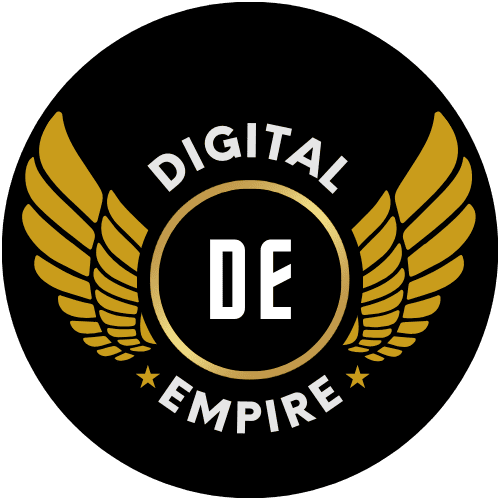
In the dynamic world of digital marketing, staying ahead in SEO is not just about understanding Google—it’s about mastering search optimization across a variety of platforms and technologies. As we navigate a “Post-Google” landscape, it becomes crucial for marketers and business owners to diversify their strategies to remain visible and relevant. This guide explores how to thrive in an environment where search engines, social media, and voice technologies play pivotal roles in determining online success.
Understanding the “Post-Google” Concept
The term “Post-Google” signifies a shift away from a singular focus on optimizing solely for Google’s algorithms. It encompasses the broader spectrum of platforms that influence online visibility today. This includes other search engines like Bing and DuckDuckGo, but also social media networks, voice search devices, and even emerging AI technologies. The key in a “Post-Google” world is flexibility and the ability to adapt to multiple, often simultaneously changing, sets of optimization rules and user behaviors.
Expanding Beyond Google: Alternative Search Engines
While Google still holds a major share of the global search engine market, other players like Bing, DuckDuckGo, and niche-specific engines are gaining traction. These platforms often offer less competition and a more targeted user base. Optimizing for Bing, for instance, involves ensuring that clear, structured data is in place, as it heavily relies on markers like metadata and schema to understand web content. DuckDuckGo, known for its privacy-focused user base, rewards websites that secure user trust and privacy. Adapting SEO strategies to include these alternatives can not only extend your reach but also safeguard against changes in Google’s ever-evolving algorithm.
Leveraging Social Media for Search Visibility
Social media platforms increasingly influence SEO, not through direct impacts on rankings but by driving traffic and enhancing brand visibility and authority. Platforms like Pinterest and YouTube, often considered search engines themselves, require specific optimization techniques. For instance, YouTube SEO involves optimizing video titles, descriptions, and tags to boost visibility. Similarly, content on Pinterest benefits from keyword-rich descriptions and engaging images that encourage clicks. Understanding how to leverage these platforms can significantly boost your overall SEO strategy by building a robust online presence that complements traditional search engine traffic.

The Importance of Voice Search Optimization
Voice search optimization is becoming essential as devices like Amazon Alexa, Google Home, and Siri integrate deeper into our daily routines. These devices pull answers from the web in response to spoken queries, often focusing on featured snippets and locally optimized content. To tap into this growing user base, businesses must adapt their content to be more conversational and question-based, focusing on long-tail keywords and structured data to increase the chance of appearing as the source for voice search answers.
Utilizing AI and Machine Learning
Artificial intelligence and machine learning are transforming SEO in ways that were unimaginable a few years ago. AI can analyze user behavior, predict trends, and automatically optimize content for better search engine rankings. For example, AI-powered tools can suggest content updates, identify SEO gaps, and provide insights into the search intent of users. Marketers can use these tools to create content that is not only SEO-friendly but also highly personalized and responsive to user needs. Moreover, machine learning algorithms can help fine-tune your website’s user experience, enhancing elements like load times and user interaction, which are vital metrics for SEO success.
Content Strategies for a Diverse Search Landscape
In a multi-platform world, content remains king—but its nature is evolving. It’s crucial to craft content that performs well across different platforms and devices. This involves understanding the nuances of each platform, whether it’s a social media site, a mobile app, or a desktop website. For instance, video content may dominate on mobile devices due to better engagement rates, while long-form written content may perform better on desktop searches. Creating diverse content formats—such as blogs, videos, infographics, and podcasts—and tailoring them to the specific demands of each platform can significantly boost your visibility and engagement.

Technical SEO in a Multi-Platform World
Technical SEO is more critical than ever in ensuring that your site is discoverable and performs well on all platforms. This includes mobile-first indexing, where Google predominantly uses the mobile version of the content for indexing and ranking. Sites must be optimized for mobile devices, with responsive design, fast load times, and easy navigation. Additionally, secure websites (HTTPS) are ranked higher by search engines as they provide a safer experience for users. Regular audits to check for broken links, slow loading pages, and crawl errors are also essential to maintain and improve search rankings.
Future Trends in SEO
As we look to the future, SEO is set to become even more integrated with other forms of digital marketing. Voice search will expand as more homes adopt smart speakers, and visual search could transform how we find products online. Additionally, the integration of virtual reality and augmented reality into search could provide new avenues for content interaction and user engagement. Staying informed about these trends and experimenting with new technologies will be key to staying ahead in SEO.
Conclusion
Mastering SEO in a Post-Google world requires an adaptive, multi-faceted approach that goes beyond traditional search engine tactics. By embracing alternative search engines, leveraging social media, optimizing for voice search, utilizing AI, and maintaining a robust technical SEO foundation, businesses can ensure that they remain competitive and visible across all digital platforms. As the digital landscape continues to evolve, so too must our strategies. The future of SEO is dynamic and exciting, and by staying proactive and informed, marketers can not only adapt but thrive.






